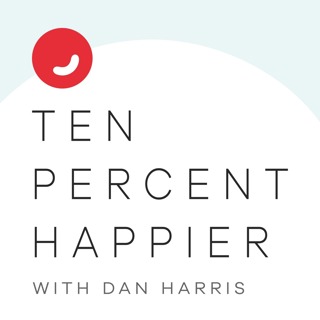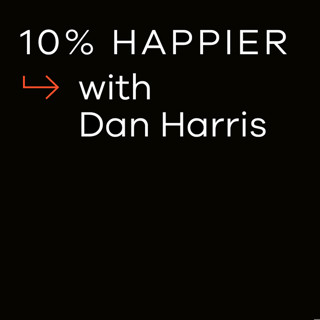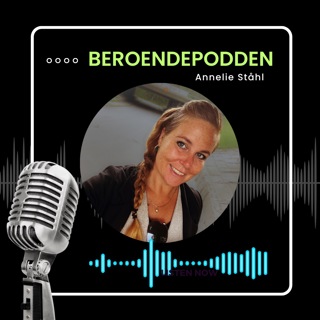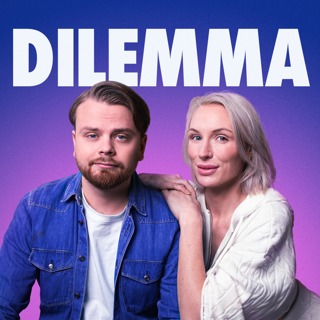
How to Focus | Shaila Catherine
Living as we do in an era that has been called the info blitzkrieg, staying focused can be extremely difficult for many of us. This can be true when we’re working and trying to stay on task. It can also be true in meditation, when we might find our minds flitting all over the place. My guest today is an Olympic-level concentrator and she has tons of tips for staying focused. We also talk about one of my favorite meditation subjects: the altered states of consciousness called “the jhanas” that are apparently available to advanced meditators who can attain super-deep states of concentration. (I say “apparently” because I clearly have never been in these altered states.) Shaila Catherine is the founder of Insight Meditation South Bay, a meditation group in Silicon Valley. She has been practicing meditation since 1980, with more than nine years of accumulated silent retreat experience. She’s the author of Focused and Fearless: A Meditator’s Guide to States of Deep Joy, Calm, and Clarity. In this conversation, we cover: the basic building blocks of concentration in meditation practice; cultivating the “right attitude” for meditation; the difference between concentration and mindfulness and how they support each other; and whether the jhana states are attainable for regular people. We also want to deeply thank and recognize mental health professionals for everything you do. For a year's FREE access to the app and hundreds of meditations and resources, visit: https://www.tenpercent.com/mentalhealth. Finally, there's an online event tomorrow you might want to check out. It's called "Well-Being Is a Skill," and it's being led by Dr. Richard Davidson at the New York Insight Meditation Center. More info can be found here: https://www.nyimc.org/event/well-being-is-a-skill/. Full Shownotes: https://www.tenpercent.com/podcast-episode/shaila-catherine-348
19 Maj 20211h 12min

What You Can Learn About Your Relationships from a Former Neo-Nazi | Shannon Foley Martinez
We’ve got a provocative but deeply practical episode today. All of us have people in our lives — whether it be our personal lives, our professional lives, or even just people we see on TV — with whom we disagree. So how can we coexist, or even reach a state of mutual understanding, with these people? It’s not an overstatement to say that your personal happiness, as well as the future of the planet, may rest in part in our collective ability to hone these skills. My guest today has done this work in some of the most extreme ways imaginable. She is a reformed neo-Nazi by the name of Shannon Foley Martinez who now works to deradicalize extremists. She’s also a consultant at American University’s Polarization and Extremism Research and Innovation Lab. In this conversation, we talk about how she got into the white power movement, how she got out of it, her methods for de-radicalizing people who are still in the movement, how she applies those methods to more mundane conversations across the many lines of differences that run through our society—and how you can, too. Just a quick note - you’ll hear some background noise, from a lawnmower and a barking dog— but that’s just the reality of recording podcasts in the middle of a pandemic. Also, as you might imagine, we hit on some pretty sensitive material here, including discussions of hate-fueled violence, racism, sexual assault, and homophobia. We also want to deeply thank and recognize mental health professionals for your support. For a year's FREE access to the app and hundreds of meditations and resources visit: tenpercent.com/mentalhealth Full Shownotes: https://www.tenpercent.com/podcast-episode/shannon-foley-martinez-347
17 Maj 202157min

The Gospel of Adequacy | Miguel Sancho & Felicia Morton
Often on the show, we bring on incredibly accomplished meditation practitioners or influential researchers who have deep things to teach us, based on their personal experience or professional pursuits. And while many of these people talk openly about their personal deficiencies, they are nonetheless speaking to us from the mountaintop, as it were. Today we are doing something entirely different. Over the years, we’ve had many requests to bring on “normal people.” That’s what you’re getting today. Normal people who survived something extreme, with the help of meditation and other modalities, and are here to talk about it in extraordinarily raw and honest terms. Miguel Sancho is the author of a new book called More Than You Can Handle: A Rare Disease, A Family in Crisis, and the Cutting Edge Medicine That Cured the Incurable. We’ve all heard stories about parents of children with serious, and possibly fatal, illness. Often in those stories, the parents come off as saintly. Miguel takes a very different route. His book is both vulnerable and hilarious. His son’s illness forces him to wrestle with his personal demons, his marital difficulties, and his volcanic temper. He even tells us about getting evicted from the Ronald McDonald House. In the end, he lands on what he calls “the gospel of adequacy.” Full disclosure: Miguel is an old friend of mine. We worked together for many years at ABC News, where he was a senior producer at 20/20. Together, we covered stories about Scientology, self-help gurus, and fundamentalist Mormons. Also joining us for this interview is Miguel‘s wife, Felicia Morton, who is the president of her own full-service public relations firm. We start with Miguel solo and talk for quite a while, then take a quick break and come back with both Miguel and Felicia. We talk about: the benefits — and limits —of meditation, what they learned about creating a healthy marriage, finding meaning in suffering, and letting go of ego and control. TPH Mental Health Awareness: We want to deeply thank and recognize mental health professionals for your support. For a year's FREE access to the app and hundreds of meditations and resources visit: tenpercent.com/mentalhealth Full Shownotes: https://www.tenpercent.com/podcast-episode/miguel-sancho-felicia-morton-346
12 Maj 20211h 4min

How to Change Your Habits | Katy Milkman
To state the blazingly obvious, creating healthy habits can be infernally difficult. But why? And what are the best strategies for getting around this? My guest today has spent nearly two decades researching these questions. Her name is Katy Milkman. She is a behavioral scientist and professor at the Wharton School at the University of Pennsylvania. She hosts a podcast called Choiceology and has written a new book called, How to Change. In this conversation, we talk about why willpower is such an unreliable inner resource, why making habit change fun is such a powerful technique, and key strategies such as “the fresh start effect,” “temptation bundling,” “commitment devices,” “piggybacking,” and giving yourself a Mulligan. We also talk about the potentially sensitive subject of getting other people to change. Are you interested in teaching mindfulness to teens? Looking to carve your own path and share this practice in a way that feels real, authentic, and relevant in today’s world? Our friends at iBme are accepting applications for their Mindfulness Teacher Training program - catered towards working with teens and young adults. The last round of applications are due May 15th and scholarships are available. For more information and to apply, check out: https://ibme.com/mindfulness-teacher-training/. We also want to deeply thank and recognize mental health professionals for your support. For a year's FREE access to the app and hundreds of meditations and resources visit: https://www.tenpercent.com/mentalhealth. We have one final item of business, and it is an invitation for you to participate in this show. In June, we’ll be launching a special series of podcast episodes focusing on anxiety – something I’m sure we’re all too familiar with. In this series, you’ll become intimately familiar with the mechanics of anxiety: how and why it shows up and what you may be doing to feed it. And this is where you come in. We’d love to hear from you with your questions about anxiety that experts will answer during our anxiety series on the podcast. So whether you’re struggling with social anxiety, anxiety about re-entering the world post-Covid, or have any other questions about anxiety - we want to hear from you. To submit a question or share a reflection call (646) 883-8326 and leave us a voicemail. If you’re outside the United States, you can email us a voice memo file in mp3 format to listener@tenpercent.com. The deadline for submissions is Wednesday, May 12th. Full Shownotes: https://www.tenpercent.com/podcast-episode/katy-milkman-345
10 Maj 20211h 11min

How to Handle Anger, Uncertainty, and Self-Loathing | Mushim Patricia Ikeda
When somebody wrongs you, what is the wise way to handle your anger? Is forgiveness possible? What about friendliness? My guest today has a lot of thoughts about how to handle anger and how to respond to people who mean you harm. It might surprise you to hear from a Buddhist teacher who actually isn’t utterly disparaging of anger. In fact, she is proud (somewhat facetiously) of having been called “the original Angry Asian Buddhist.” Her name is Mushim Patricia Ikeda, and she is my kind of Buddhist. She self-describes as “snarky,” and, as you will hear, she loves to laugh. She has doable, down-to-earth strategies, and she makes a compelling, if counterintuitive, case for the pragmatism of sending goodwill to people who want to harm you. Mushim is a core teacher at the East Bay Meditation Center. She is a writer, activist, and diversity consultant. She has trained for decades as both a lay and monastic Buddhist. Aside from anger, we also discuss how to handle uncertainty, and what Mushim calls a “pandemic of self-loathing” in our culture. But we begin with some candid talk about the trauma of being an Asian-American during a time of rising violence against the AAPI community. This is the second in a two-part series on the uptick in anti-Asian violence -- a trend that should be particularly worrisome for this audience, given the Asian roots of meditation and many of the other happiness-producing modalities we talk about on this show. If you missed it, go check out Monday’s episode, where we explore the history of anti-Buddhist and anti-Asian violence in America (which started decades before the pandemic), and the hurt felt by many Asian-American Buddhists about how they can be overlooked by other American Buddhists, including, sometimes, me. Two other items of business: first, are you interested in teaching mindfulness to teens? Looking to carve your own path and share this practice in a way that feels real, authentic, and relevant in today’s world? Our friends at iBme are accepting applications for their Mindfulness Teacher Training program - catered towards working with teens and young adults. The last round of applications are due May 15th and scholarships are available. For more information and to apply, check out: https://ibme.com/mindfulness-teacher-training/. And second, we want to recognize and deeply thank mental health professionals for all you do. For a year's FREE access to the app and hundreds of meditations and resources, visit: https://www.tenpercent.com/mentalhealth. Full Shownotes: https://www.tenpercent.com/podcast-episode/mushim-patricia-ikeda-344
5 Maj 20211h 11min

What Everyone Who Meditates Should Know | Chenxing Han and Duncan Ryūken Williams
If you meditate (or do yoga, for that matter), you may have been taught by a Westerner, but you owe a gigantic debt of gratitude to the giants and geniuses in Asia who developed these practices. This fact can be overlooked or downplayed -- intentionally or otherwise -- by Western practitioners, including, sometimes, me. However, in the midst of a spike of anti-Asian violence, now seems like a very good time to learn more about where these practices came from, and why many Asian-American Buddhists sometimes feel erased. Not only is this the right thing to do, but it can also add depth and perspective and freshness to your practice. In this episode, we have two fascinating guests who will talk about what it’s been like for them to be Asian American Buddhists in the midst of this spate of hate crimes, and walk us through the long and ugly history of anti-Buddhist violence in America. We also talk about: how all meditators (not just people in vulnerable communities) can learn resiliency through meditation; the connection between karma and reparations; and whether it’s possible, or advisable, to generate goodwill towards people who hate you. We also have a frank conversation about how some of my own messaging about Buddhism in America has missed the mark. My guests are: Chenxing Han, who is the author of Be the Refuge: Raising the Voices of Asian American Buddhists. She holds a BA from Stanford and an MA in Buddhist Studies from the Graduate Theological Union. And, Duncan Ryūken Williams, who is the author of American Sutra: A Story of Faith and Freedom in the Second World War. He has a B.A. in Religious Studies from Reed and a Ph.D. in Religion from Harvard. He is currently a professor at the University of Southern California. He’s also a Zen priest. Both Duncan and Chenxing are helping to organize a national ceremony -- which will take place the day after we post this interview -- on the 49-day anniversary of the Atlanta spa shootings that took the lives of several Asians and Asian-Americans. (For more on that ceremony, click here: https://www.maywegather.org/) One thing to say before we dive in: we are dedicating this whole week to the spike in hate crimes against members of the AAPI community. On Wednesday, we’ll talk to Mushim Ikeda, a Buddhist teacher, about how all of us can use meditation to deal with anger, uncertainty, and self-loathing. And two more items of business: first, are you interested in teaching mindfulness to teens? Looking to carve your own path and share this practice in a way that feels real, authentic, and relevant in today’s world? Our friends at iBme are accepting applications for their Mindfulness Teacher Training program - catered towards working with teens and young adults. The last round of applications are due May 15th and scholarships are available. For more information and to apply, check out: https://ibme.com/mindfulness-teacher-training/ And second, we want to deeply thank and recognize mental health professionals for your support. For a year's FREE access to the app and hundreds of meditations and resources visit: https://www.tenpercent.com/mentalhealth Full Shownotes: https://www.tenpercent.com/podcast-episode/chenxing-han-duncan-ryuken-williams-343
3 Maj 20211h 6min

The Science of Building Better Relationships | Marissa King
The idea of networking can be fraught. For some people, it might, at times, seem either icky or pathetic to deliberately try to make friends, either in a personal or professional context -- especially since so many of us may be feeling a bit socially awkward anyway, after months of Covid restrictions. However, my guest today will argue that there are profound health benefits to building positive relationships, and she has advice about how to actually do it, based on neuroscience and psychology. Marissa King is a Professor of Organizational Behavior at the Yale School of Management, where she studies social networks, social influence, and team dynamics. She is also the author of a recently-released book, called Social Chemistry: Decoding the Patterns of Human Connection. In this conversation, we talk about: how your social networks impact your mental health; how, when it comes to social networks, quality and structure are more important than quantity; why you’re not as bad at being social as you may think; the importance of humor; how status and privilege play into networking; the benefits of calling up old friends you haven’t spoken to in a while; and she will ask you to consider whether you are a convener, a broker, or an expansionist. This is actually part two of a two-part series that we're running this week about the hard science and soft skills of social connection. If you missed it on Monday, we had an amazing interview with a researcher named Barbara Fredrickson from UNC Chapel Hill. She has a lot of fascinating things to say about what love actually is and takes a pretty broad view of the concept of love. You don't have to listen to that in order to understand this episode, but I think they work great in concert. One more item of business, and it is an invitation for you to participate in this show. In June, we’ll be launching a special series of podcast episodes focusing on anxiety, something I’m sure we’re all too familiar with. In this series, you’ll learn the mechanics of anxiety: how and why it shows up and what you may be doing to feed it. And this is where you come in. We’d love to hear from you with your questions about anxiety that experts will answer during our anxiety series on the podcast. So whether you’re struggling with social anxiety, anxiety about re-entering the world post-Covid, or have any other questions about anxiety - we want to hear from you. To submit a question or share a reflection call (646) 883-8326 and leave us a voicemail. If you’re outside the United States, you can email us a voice memo file in mp3 format to listener@tenpercent.com. The deadline for submissions is Wednesday, May 12th. And if you don't already have the Ten Percent Happier app, you can download it for free wherever you get your apps or by clicking here: https://www.tenpercent.com/?_branch_match_id=888540266380716858. Full Shownotes: https://www.tenpercent.com/podcast-episode/marissa-king-342
28 Apr 20211h 4min

The Art and Science of the World’s Gooiest Cliche | Barbara Fredrickson
One of our primary missions on this show is to rescue vital ideas that have lapsed into cliches. There are so many important concepts out there that many of us might be tempted to dismiss because they are encrusted with cultural baggage or have been reduced to potentially annoying or sappy slogans. So, for example, we’ve talked a lot on this podcast about things like: hope, gratitude, and “listening to your body.” All of which can sound like the type of empty bromide that your spin instructor yells at you while encouraging you to pedal faster. But, in fact, these are all incredibly important operating principles for a healthy life. And, not for nothing, they are all backed up by hard science. So today we’re going to tackle what may be the oldest and gooieset cliche of them all: love. The word has been ruined, in many ways, by Hollywood and pop songs. For many of us, the mere mention of the word conjures images of Tom Cruise, with tears in his eyes, while the string music swells, declaring, “You complete me.” But in my view, and in the view of my guest today, love needs to be usefully defined down. In other words, we need to knock love off its plinth, and apply it to a much wider range of human interactions. We also need to think of love not as something magical that requires luck or money or looks, but instead as a trainable skill -- one with profound implications for our health. Barbara Fredrickson is the Kenan Distinguished Professor in the Department of Psychology and Neuroscience at the University of North Carolina at Chapel Hill. She has written two books: one is called Positivity, the other is called Love 2.0. In this interview, we talk about how she defines love, based on her research; how meditation can help build this skill; how taking a few extra minutes to chat with people, even if you feel busy, can have psychological, physiological, and even professional benefits; and how to manage social anxiety as we emerge from our Covid cocoons. This episode is actually part one of a two-part series running this week on social connection. Coming up on Wednesday, we’ll hear from Marissa King, a professor at Yale who studies how to create social networks, even when it feels uncomfortable. And by social network, I don't mean something like Facebook. I mean actual networks of actual human beings that you see in person. She’s got a lot of practical and actionable advice about how to do that, even within the context of Covid. So be sure to listen in on Wednesday. One more item of business, and it is an invitation for you to participate in this show. In June, we’ll be launching a special series of podcast episodes focusing on anxiety, something I’m sure we’re all too familiar with. In this series, you’ll become intimately familiar with the mechanics of anxiety: how and why it shows up, and what you may be doing to feed it. And this is where you come in. We’d love to hear from you with your questions about anxiety that experts will answer during our anxiety series on the podcast. So whether you’re struggling with social anxiety, anxiety about re-entering the world post-Covid, or have any other questions about anxiety - we want to hear from you. To submit a question or share a reflection call (646) 883-8326 and leave us a voicemail with your name and phone number. If you’re outside the United States, you can email us a voice memo file in mp3 format to listener@tenpercent.com. The deadline for submissions is Wednesday, May 12th. And if you don't already have the Ten Percent Happier app, download it for free wherever you get your apps or by clicking here: https://www.tenpercent.com/?_branch_match_id=888540266380716858. Full Shownotes: https://www.tenpercent.com/podcast-episode/barbara-fredrickson-341
26 Apr 20211h 8min






















